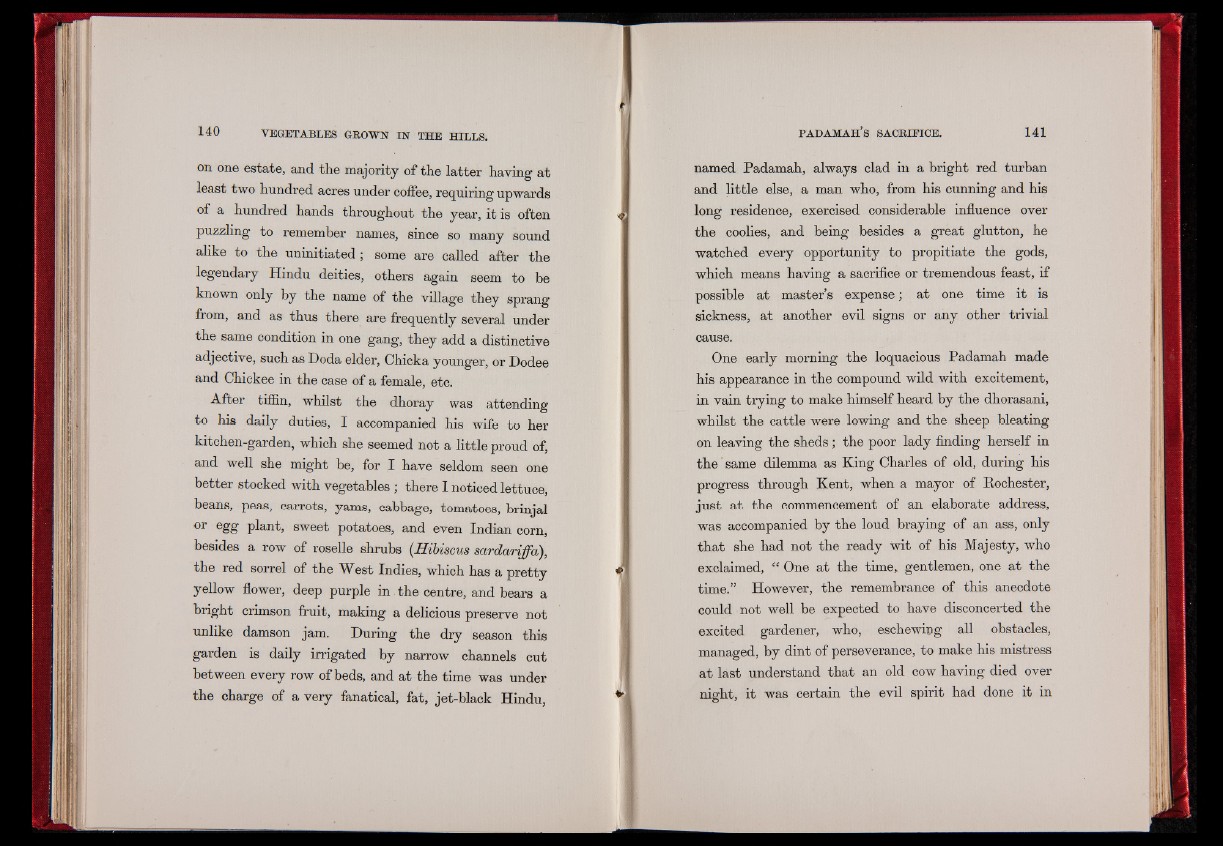
140 VEGETABLES GROWN IN THE TTTT.T.s,
on one estate, and the majority of the latter having at
least two hundred acres under coffee, requiring upwards
of a hundred hands throughout the year, it is often
puzzling to remember names, since so many sound
alike to the uninitiated; some are called after the
legendary Hindu deities, others again seem to be
known only by the name of the village they sprang
from, and as thus there are frequently several under
the same condition in one gang, they add a distinctive
adjective, such as Doda elder, Chicka younger, or Dodee
and Chickee in the case of a female, etc.
After tiffin, whilst the dhoray was attending
to his daily duties, I accompanied his wife to her
kitchen-garden, which she seemed not a little proud of,
and well she might be, for I have seldom seen one
better stocked with vegetables ; there 1 noticed lettuce,
beans, peas, carrots, yams, cabbage, tomatoes, brinjal
or egg plant, sweet potatoes, and even Indian corn,
besides a row of roselle shrubs (Hibiscus sardariffa),
the red sorrel of the West Indies, which has a pretty
yellow flower, deep purple in the centre, and bears a
bright crimson fruit, making a delicious preserve not
unlike damson jam. During the dry season this
garden is daily irrigated by narrow channels cut
between every row of beds, and at the time was under
the charge of a very fanatical, fat, jet-black Hindu,
p a d a m a h ’s s a c r if ic e . 141
named Padamah, always clad in a bright red turban
and little else, a man who, from his cunning and his
long residence, exercised considerable influence over
the coolies, and being besides a great glutton, he
watched every opportunity to propitiate the gods,
which means having a sacrifice or tremendous feast, if
possible at master’s expense; at one time it is
sickness, at another evil signs or any other trivial
cause.
One early morning the loquacious Padamah made
his appearance in the compound wild with excitement,
in vain trying to make himself heard by the dhorasani,
whilst the cattle were lowing and the sheep bleating
on leaving the sheds; the poor lady finding herself in
the ‘ same dilemma as King Charles of old, during his
progress through Kent, when a mayor of Rochester,
just at the commencement of an elaborate address,
was accompanied by the loud braying of an ass, only
th a t she had not the ready wit of his Majesty, who
exclaimed, “ One at the time,, gentlemen, one at the
time.” However, the remembrance of this anecdote
could not well be expected to have disconcerted the
excited gardener, who, eschewing all obstacles,
managed, by dint of perseverance, to make his mistress
a t last understand that an old cow having died over
night, it was certain the evil spirit had done it in